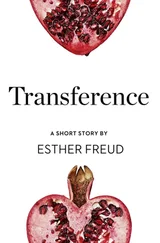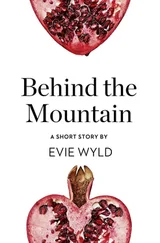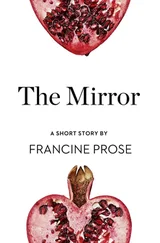Maybe it was because he had drunk too much also, but his reaction was less sceptical than she had been expecting. ‘If she’s appeared so vividly, why don’t you paint her portrait, darling?’
‘Maybe I will,’ she replied thoughtfully.
Despite a hangover the next morning, Meg set up a fresh canvas on her easel in the living room, then sketched in pencil, the way she always began any portrait, the woman’s head and shoulders. So clear was her memory of what she had seen that within half an hour she had begun painting. The face of a handsome woman in her early fifties, with elegant, brown wavy hair tinged grey in places, and wearing a soft green cardigan over a cream blouse, began to appear. As she stood back for a few moments, she noticed a sad expression in the woman’s face.
She reminded her of someone, and then she realized who. She looked a little like a younger, less beautiful and less vivacious sister of the actress Joan Collins.
She was so absorbed in her work that two hours passed without her being aware. Then the ringing of the doorbell cut through her concentration.
She was irritated by the interruption, and for a moment was tempted to ignore it and carry on. But there was a ton of stuff she had ordered online for the house, so she put down her brush and walked through to the front door, not wanting to risk missing a delivery.
To her surprise, a pleasant-looking silver-haired woman of about sixty stood there. She was dressed in a baggy tracksuit top, shapeless brown slacks and trainers. ‘Hello,’ she said. ‘I’m Jenny Marples. My husband and I live right opposite you, at number 17. I’m also the local Neighbourhood Watch co-ordinator. Just thought I’d pop over and say hello to our new neighbours!’
‘Nice to meet you,’ Meg said, and she meant it. So far she’d not seen a soul in the street, and had been planning to pop round to all their immediate neighbours to introduce herself. She invited Jenny Marples in for a cup of tea, which the woman enthusiastically accepted.
They went first into the kitchen, which Meg was a little embarrassed about as it was so drab and still very untidy, part of the work surface and the table still piled with crockery and kitchen utensils she had not yet found a permanent home for. While the kettle was coming to the boil, Jenny Marples said, ‘We barely met the previous owners, you see, they were here for such as short time. They moved in, and then, almost before we’d even got to know their names, they’d gone! Overseas, I’m told.’
‘Abu Dhabi. Do you take milk? Sugar?’
She set their cups and saucers on a tray, shook out some chocolate digestives onto a plate, then led the way through into the living room.
‘You’re an artist?’ Jenny exclaimed.
‘A struggling one! I’m hoping to get some commissions.’
‘You’re good!’ her neighbour said. ‘That is really—’
Then she stopped in her tracks and peered more closely at the portrait on the easel. She turned, with a frown. ‘Is that yours, or did you find that here?’
‘It’s mine,’ Meg said, setting the tray down on the coffee table. ‘Sort of a work in progress.’ Then she caught the strange look on Jenny Marples’ face. ‘Found it here? What do you mean, exactly?’
‘Well… that’s extraordinary! You see—’ her neighbour’s voice trailed off. She stared back at Meg. ‘Is it someone you know?’
Meg felt her face redden. ‘Well, not exactly, no. I—’ She watched the woman’s face closely, feeling a deepening sense of unease as she peered even more intently at the portrait.
‘That’s Alwyn!’ she declared. ‘Alwyn Hughes! You painted this? You really painted this?’
‘I did.’
‘The likeness is incredible. I mean it, incredible. It’s her!’
‘Alwyn Hughes?’
‘You must have copied this from something? A photograph perhaps?’
‘I’m sorry, I’m not with you.’
‘She used to live here!’
Meg felt the goosebumps rising up her back. ‘When… when was that?’
‘You don’t know?’
‘I don’t. Please tell me.’
The two women sat down opposite each other on the sofas. Jenny looked at her strangely, then back at the portrait again. ‘You didn’t hear the story? The estate agent didn’t tell you?’
‘The estate agent told us the previous owners had only been here a short while. Shortly after they moved in, the husband was offered a very lucrative contract for a five-year posting in Abu Dhabi. My husband, Paul, who’s an accountant, explained to me that if you want to go into tax exile, you cannot own a home in the UK — so I understand that is the reason why they had to sell the house.’
Jenny Marples nodded. ‘That would make sense. They were such a nice couple; they fitted so nicely into the neighbourhood. We were all sorry when they left so suddenly.’ She sipped her tea, then glanced at her watch.
‘What didn’t the agent tell us?’ Meg asked.
‘It was really so sad, so sad. Alwyn and her husband moved here around the same time that my husband, Clive, and I did. She loved this house so much — well, you know,’ she said, tapping her nose in a conspiratorial way, ‘this is rather an exclusive area. A lot of people dream of living in Hove 4. It was a bit of a financial stretch for them, but her husband had a job with good prospects, she told me, and although they had mortgaged up to the hilt, their children had grown up and were off their hands, so she hoped that within a few years their financial situation would improve considerably. But they had the most terrible luck.’
She sipped more tea, and fell silent for some moments.
‘What was that?’ Meg prompted, shooting a glance at the portrait.
‘Well, she told me they’d been up to Yorkshire to spend Easter weekend with her husband’s parents, in Harrogate. On their way back down the M1 they’d been involved in one of those horrific multiple-vehicle motorway pile-ups. They were rear-ended by a lorry and shunted into a car in front. Her husband was killed instantly, and she was trapped in the car by her legs. They had to amputate one of them, her right leg, to free her.’
Meg felt as if she had been dunked in an ice bath. She recalled, so vividly, the woman she had seen in the mirror, standing behind her on one leg. Her left. Goosebumps crawled over every inch of her skin. ‘Poor woman,’ she said. ‘Poor, poor woman.’
‘Terrible.’
Jenny drained her tea. Meg offered her another cup, but the woman looked at her watch anxiously. ‘I have to be going,’ she said. ‘I have a charity fundraising committee meeting.’
‘What else can you tell me about Alwyn Hughes?’
She saw Jenny glance at the portrait, as if it was making her increasingly uncomfortable. ‘Well, the thing is — the thing that is so sad — is that she loved this house so much. But she had no sympathy from the mortgage company, nor their bank. Her husband hadn’t got any life insurance — well, he had, but he’d stopped payments apparently some months before because things weren’t going too well at work for him. She did her best to try to get a job, to earn enough to keep up with the mortgage payments, but who wants a middle-aged woman with one leg? The building society were in the process of foreclosing. She should have let them — they had some equity in the house, and she could have bought a little flat with it — but, poor thing, she couldn’t see through that. So she hung herself in their bedroom.’
The story is best told from Francis Wells’ perspective from now on.
I was approached by the Reverend Michael Carsey, a vicar of the Church of the Good Shepherd, and parish priest for the area of Hove 4 in the city of Brighton and Hove. He had been contacted by two of his parishioners, Paul and Meg Ryerson, with a story that he found convincing, but was uncertain how to deal with the situation. He suggested I should talk to them myself.
Читать дальше












